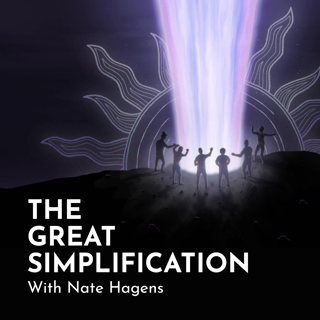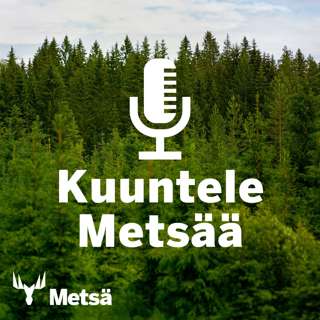
David Sloan Wilson: "Chickens, Cooperation and a Pro-social World"
On this episode, evolutionary biologist David Sloan Wilson joins Nate to unpack how evolution can be used to explain and understand modern human behavior, particularly with respect to cooperation and pro-social behavior. David is a leading scholar in this field, especially on the resurgence of the concept ‘multi-level selection’. How can an evolutionary idea, first thought of by Darwin and subsequently ignored until recently, shed light on human’s inherent balance between competition and cooperation? And how might our improved knowledge of where we come from inform our behaviors and collective governance in the decades ahead? About David Sloan Wilson: David Sloan Wilson is one of the foremost evolutionary thinkers and gifted communicators about evolution to the general public. He is SUNY Distinguished Professor of Biology and Anthropology Emeritus at Binghamton University and President of the nonprofit organization ProSocial World, whose mission is "To consciously evolve a world that works for all". His most recent books are This View of Life: Completing the Darwinian Revolution, Prosocial: Using Evolutionary Science to Build Productive, Equitable, and Collaborative Groups (with Paul Atkins and Steven C. Hayes), and his first novel, Atlas Hugged: The Autobiography of John Galt III. For Show Notes and More visit: https://www.thegreatsimplification.com/episode/56-david-sloan-wilson
1 Helmi 20231h 22min

The Mordor Economy | Frankly #23
Description This week, Nate walks through the path we are currently on en route to the Great Simplification - a path towards a “Mordor Economy”. Based on data from colleagues Art Berman and Carey King, Nate untangles the complex relationship between biology, GDP, and net energy. How is an economic metabolism based on a need for growth creating a pathway for increasing amounts of energy to be directed to the energy sector itself? Why hasn’t the rapid growth of renewables satiated our energy appetite? How is the use of credit masking the full energetic-cost of energy? Can we proactively take the necessary steps to reset the balance between energy efficiency and energy consumption to pass through Mordor unscathed and arrive at the Great Simplification? To Watch on Youtube: https://youtu.be/HoYg9M8brF4 For Show Notes and More: https://www.thegreatsimplification.com/frankly-original/23-mordor-economy
27 Tammi 202312min

Erica Thompson: "Models, The Hawkmoth Effect, and the Future"
On this episode, Dr. Erica Thompson joins Nate to unpack her recent book Escape From Model Land. Erica explores the pitfalls of conventional science models and the opportunities by which models can augment our imagination and collective understanding. What is a model, and how do our worldviews shape the way they’re made - and conversely, how do they shape our worldviews? How can we rethink and bring creativity into something as scientific as modeling to create maps of the future that are both more accurate and - most importantly - more helpful to planning responses? About Eric Thompson: Dr Erica Thompson is a Senior Policy Fellow at the LSE Data Science Institute, where she works on a broad programme of theoretical and practical research about mathematical models, their use, interpretation and social context. She recently authored Escape From Model Land (Basic Books, 2022) which explores the opportunities and challenges of augmenting our imagination about the future with mathematical tools. For Show Notes and More visit https://www.thegreatsimplification.com/episode/55-erica-thompson
25 Tammi 20231h 12min

Arthur Berman: "Peak Oil - The Hedonic Adjustment"
On this episode, petroleum geologist Arthur Berman returns to unpack the development and drawbacks of ‘peak oil’. Art explains how our institutions have redefined what is considered oil, which has created an illusion of constantly growing oil production. The reality is that - circa 2023 - fully 40% of what is called oil is comprised of things that are ‘not oil’. What does this imply for global peak oil? Is peak oil, an observation which has been around for decades and repeatedly proven ‘wrong’, even relevant today? Is a specific ‘peak’ date even helpful or should we be focusing on the logical implications of a declining primary resource for global economies? And then, what should we do About Art Berman: Arthur E. Berman is a petroleum geologist with 36 years of oil and gas industry experience. He is an expert on U.S. shale plays and is currently consulting for several E&P companies and capital groups in the energy sector. For Show Notes and More visit https://www.thegreatsimplification.com/episode/54-arthur-berman To watch this video episode on Youtube → https://youtu.be/CDBJdQnjE2o
18 Tammi 20231h 10min

William E. Rees: "The Fundamental Issue - Overshoot"
On this episode, Nate is joined by systems ecologist William E. Rees. Professor Rees outlines why most of the challenges facing humanity and the biosphere have a common origin - ecological overshoot. Bill also unpacks “the ecological footprint” - a concept that he co-created, that measures the actual resources used by a given population. Bill also describes his experience as a leading thinker in public policy and planning based on ecological conditions for sustainable socioeconomic development, and the challenges he’s faced working in a system which (so far) rejects such premises. Is it possible for a different way of measuring the system to set different goals of what it means to be successful as a society? About Bill Rees: William Rees is a population ecologist, ecological economist, Professor Emeritus and former Director of the University of British Columbia’s School of Community and Regional Planning in Vancouver, Canada. He researches the implications of global ecological trends for the longevity of civilization, with special foci on urban (un)sustainability and cultural/cognitive barriers to rational public policy. Prof Rees is best known as the originator and co-developer with Dr Mathis Wackernagel of ‘ecological footprint analysis’ (EFA), a quantitative tool that estimates human demands on ecosystems and the extent to which humanity is in ‘ecological overshoot.’ Dr Rees is a founding member and former President of the Canadian Society for Ecological Economics; a founding Director of the OneEarth Living Initiative; a Fellow of the Post-Carbon Institute and an Associate Fellow of the Great Transition Initiative. For Show Notes and More visit https://www.thegreatsimplification.com/episode/53-william-rees To watch this video episode on Youtube → https://youtu.be/LQTuDttP2Yg
11 Tammi 20231h 59min

The Simple Story of Civilization with Tom Murphy | Frankly #22
This week, Nate invites colleague Tom Murphy, professor of physics at the University of California, San Diego and writer of ‘Do the Math’, to unpack his recent essay The Simple Story of Civilization. Tom condenses the vast timescale of human life on Earth to an average human lifespan to give us a sense of the anomalous period we’re living through. What is civilization and how quickly did it come about? Can technology redirect civilization from its current perilous course? Is optimism näive or is it necessary in order to make the hard decisions within us? A 30 minute overview with Nate and Professor Tom Murphy. For Show Notes and More: https://www.thegreatsimplification.com/frankly-original/22-the-simple-story-of-civilization To Watch on Youtube: https://www.youtube.com/watch?v=f6yFrh1X6DI
6 Tammi 202329min

Giorgos Kallis: "Cultural Surplus and ‘Dépense’"
On this episode, Nate is joined by ecological economist and degrowth scholar Giorgos Kallis. He and Nate discuss the science and philosophy behind the degrowth movement and some of the challenges behind implementing such an enormous task. As a system precariously based on growth becomes more unstable, it is important to turn to those who specialize in ‘out-of-the-box’ thinking. This doesn’t necessarily mean we, as a society, are going to advocate or plan for degrowth - but postgrowth societies are on the horizon, and in many places are already here. Perhaps, the larger purpose of degrowth scholarship (and conversations like these) is to act as Overton Windows - to help people imagine and actualize behaviors and networks that will help us adjust in a post-growth world. About Giorgos Kallis: Giorgos Kallis is an ecological economist and political ecologist working on environmental justice and limits to growth. He has a Bachelor's degree in chemistry and a Masters in environmental engineering from Imperial College, a PhD in environmental policy from the University of the Aegean, and a second Masters in economics from the Barcelona Graduate School of Economics. He has been an ICREA professor since 2010. Before coming to Barcelona, Giorgos was a Marie Curie International Fellow at the Energy and Resources group at the University of California-Berkeley. He has also written numerous books, including his latest, Limits: Why Malthus was Wrong and Why Environmentalists Should Care. For Show Notes and More visit https://www.thegreatsimplification.com/episode/52-giorgos-kallis To watch this video episode on Youtube → https://youtu.be/4VlVqw_BKdU
4 Tammi 20231h 24min

Reflections, Predictions, and Interventions | Frankly #21
As The Great Simplification podcast celebrates its first anniversary, Nate reflects on an incredibly busy year and what he learned from the wide array of guests over 51 podcasts and 21 Franklys. Nate looks ahead into 2023 and the challenges we face geo-politically, socially, technically, and behaviorally. Join Nate as he shares insights, personal intentions and kicks off year two of The Great Simplification with Nate Hagens. To Watch on Youtube https://www.youtube.com/watch?v=W-6LTeqOHyg For Episodes, Show Notes and More go to https://www.thegreatsimplification.com/frankly-original/21-reflections-predictions-intentions
29 Joulu 202215min





















